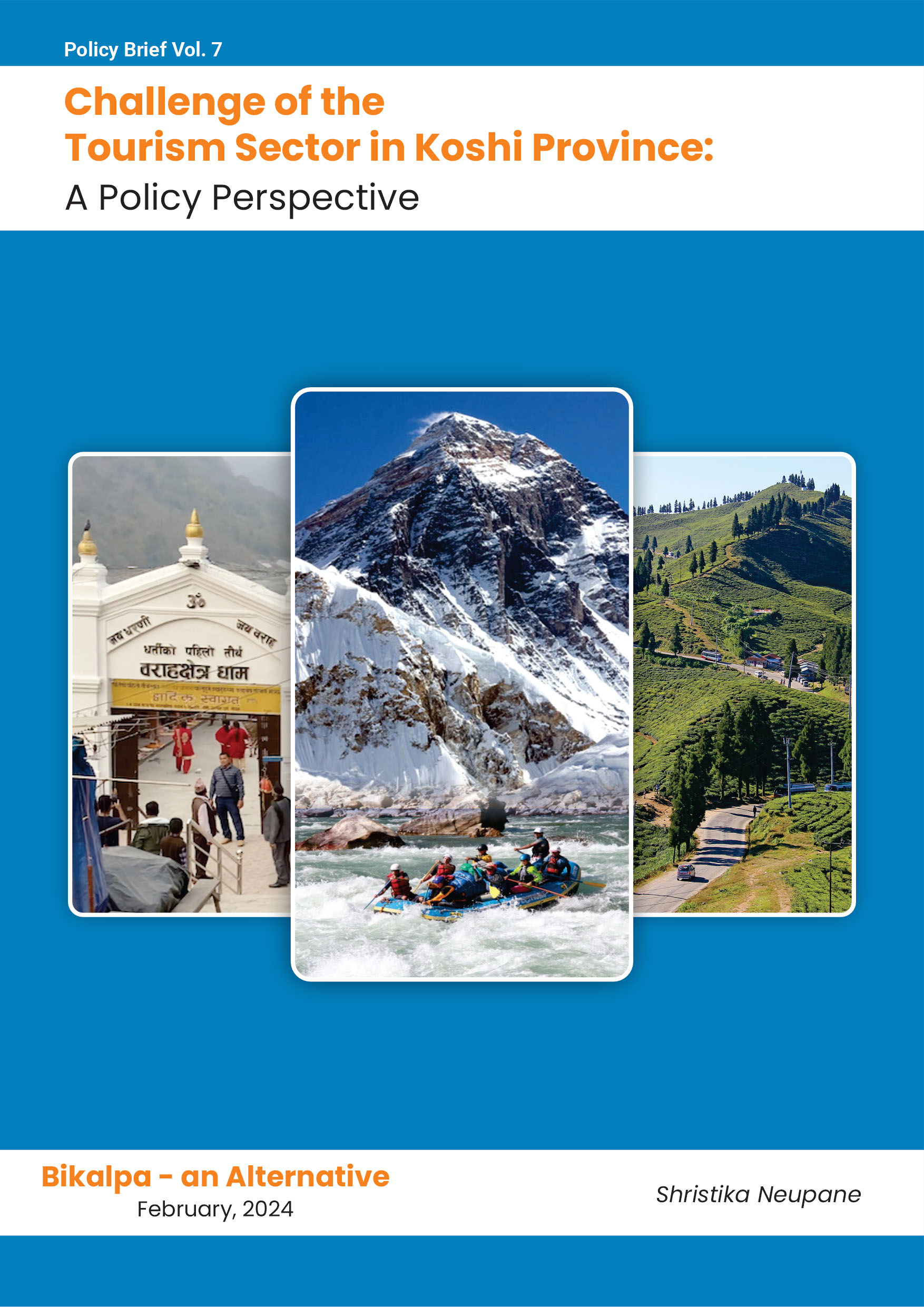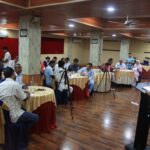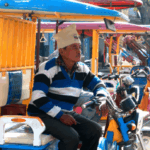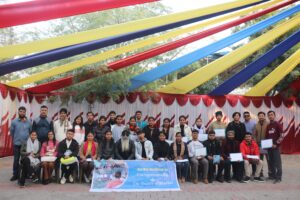Nikhil Chaudhary is a 37-year-old city rickshaw driver. He lives with his wife and two sons. His wife works in a factory. Nikhil also used to work in a factory, but after the factory shut down following 8 years of service, he became unemployed. With no other options, three years ago he took a loan to buy a city rickshaw and has been supporting his family by driving it since.
On the night of Falgun 14 (around February/March), at around 2 a.m., Nikhil was on his rickshaw taking a group of people from a religious singing group (bhajan-kirtan mandali) to their destination. It was a dark night, and there were hardly any people or vehicles on the road. When one of the passengers requested to stop to relieve themselves, Nikhil parked the rickshaw by the roadside.
While he was waiting in the rickshaw, a motorcycle came speeding from the opposite direction and crashed into his rickshaw. Due to the high speed, the motorcyclist got injured and died. Nikhil was injured on his head and lost consciousness. One of his legs was fractured, and one of the passengers was also injured. His rickshaw was badly damaged.
After receiving treatment for 2–3 weeks at Birat Teaching Hospital in Budhiganga, Nikhil was taken into custody at the Morang District Police Office for investigation.
The deceased motorcyclist’s family blamed Nikhil for the accident. However, according to Nikhil, his vehicle was on the correct side of the road and the motorcyclist was the one coming from the wrong direction. He claimed he was not at fault. Still, regardless of who was at fault, a life had been lost, and Nikhil had to face the consequences.
The court did not found Nikhil guilty and ordered his release on bail of NPR 150,000 on Baisakh 3, 2082 B.S. (approx. mid-April 2025). He paid the bail amount the same day, and his family and friends were confident he would be released. However, according to Nikhil, the police had forced him to sign a document at the court. Because of this, he was summoned to the Morang District Administration Office on Baisakh 4 for a statement.
I tried to gather more information about Nikhil’s case from the staff at the District Administration Office. What I learned was this: determining who was at fault and what punishment or release is to be given is the court’s responsibility. However, it is the District Administration Office’s job to investigate whether the offender (Nikhil, in this case) has paid NPR 500,000 as compensation for the funeral and death-related expenses to the victim’s family, along with any additional medical expenses.
If the compensation was not paid, even though the court had ordered Nikhil’s release on bail, the District Administration Office had the authority to send him back to jail. However, the office only ordered Nikhil to pay NPR 250,000 in compensation.
Nikhil comes from a poor family background. For his family, managing both the court-ordered bail amount of NPR 150,000 and the compensation of NPR 250,000 was not easy. Still, his family managed to collect the compensation amount with help from friends and relatives and brought Nikhil back home. Had they not paid it on time, Nikhil would have surely ended up in jail.
If Nikhil had held a proper city rickshaw license, the insurance company would have covered the compensation amount, and he wouldn’t have had to bear the financial burden himself. But without a license, one cannot claim insurance. Thousands of city rickshaw drivers like Nikhil face the similar problem. Most of them do not have driving licenses because they are illiterate.
By law, acquiring a license requires passing both a written and a trial exam. However, since most city rickshaw drivers are illiterate, they are unable to pass the written test, even if they can pass the practical exam, this makes it difficult for them to get a license. Without a license, traffic police don’t just harass them — in case of accidents, they may face jail time for being unable to pay compensation to the victim’s family.
If the state is concerned in supporting the livelihoods and employment of city rickshaw drivers and their family and ensure safe and accessible transportation for millions of short-distance travelers, it would be appropriate to consider policy reforms. Removing the requirement for a written exam and instead allowing a system of interview and practical exams would make it easier for illiterate drivers to obtain licenses.
Besides this, the law currently sees the person who dies in an accident as the “victim,” regardless of who was actually at fault. Sometimes, the so-called “victim” may have been the one at fault. Even if not, it’s problematic that the so-called “offender” must pay NPR 500,000 in compensation by default. There should be a legal reform where compensation is only required when fault has been proven.











